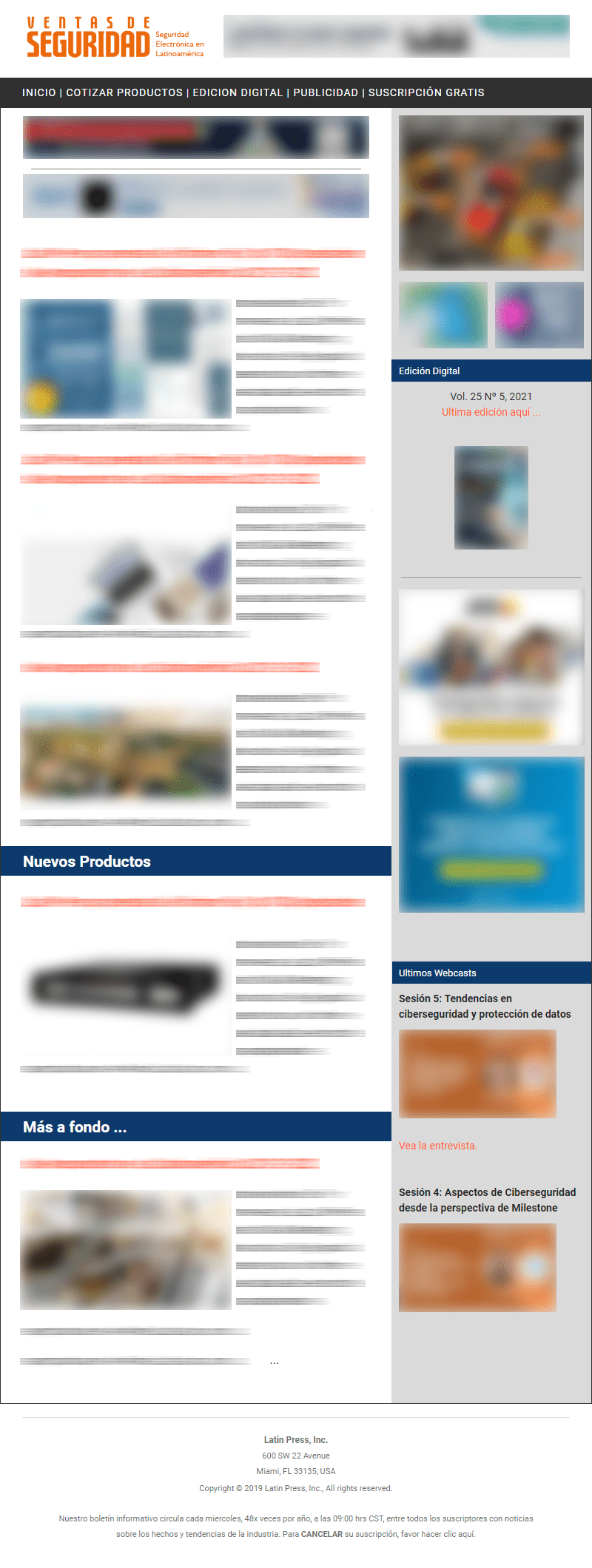By Juan Carlos Zamora | The Universal
SAO PAULO, Brazil.- When you sail are you aware of the risks you run of being a victim of a computer crime? Well, find out: you could be part of the 65 percent of netizens in the world who suffer from virus attacks, credit card fraud or identity theft.
According to the "Norton Cybercrime Report: The Human Impact", a study carried out this year by the company specialized in technological and Internet security, in the United States the percentage increases to 73 percent; in China, at 83 percent, and in Brazil and India, the most affected, at 76 percent.
"Cybercrime is very real for everyone," says Janice Chaffin, president of Symantec's Consumer Business Unit. "Cybercriminals don't give up, and consumers need better protection to be online."
The study, first conducted by Norton, reports users' online behavior, reviews hazards and studies how people are or are not prepared about dangers. It was implemented in 14 countries, including Mexico.
The research shows that 76 percent of Brazilians who are victims of cybercrime pay on average 2,500 reais (about 1,300 dollars) and need 43 days, minimum, to resolve the consequences of these.
"Also, people are very emotionally affected by cybercrime," Chaffin observes. "It is very important that we allow this to be better understood by the population, to eliminate the number of victims."
The report shows that the strongest reactions of victims are anger (58 percent), annoyance (51 percent) and deception (40 percent), in addition to blaming themselves for being attacked. Only 3 percent believe something like a cybercrime won't happen to them and 80 percent don't expect cybercriminals to be brought to justice.
The sense of helplessness and reluctance to decide whether or not to report criminals is a consequence of a lack of trust in the laws.
The suspicion also has to do with the fact that there are no laws that cover this type of crime, especially in emerging markets such as China, Brazil and India, where precisely most of the crimes are occurring.
In that sense, Bruno Rossini, director of communication for Norton, explains that Brazil is far behind in establishing adequate legislation, while Argentina is advanced and Mexico is just getting to review this panorama.
The most advanced nations in punishing cybercrime are the United States and European Union countries, Chaffin says.
USER BEHAVIOR
Netizens in the 14 countries covered by the study (Australia, Brazil, Canada, China, France, Germany, India, Italy, Japan, New Zealand, Spain, Sweden, the United Kingdom and the United States) seem not to be very convinced to change their behavior when using the Internet: only half of adults, 51 percent, are willing to change if they arrived.
to be the victim of a cybercrime, while 44 percent, less than half of those who were victims, made the report to the police.
Although in Brazil it takes about 43 days to solve a crime, the average of the 14 countries indicates that it is 28, with an average cost of 334 dollars.
"We all pay for cybercrime," says Adam Palmer, a security adviser at Norton. "Cybercriminals appropriate small amounts to go unnoticed, but this all adds up. If a loss is not reported, the offender is helped to go unnoticed."
Although it is recognized that cybercrime is present in the lives of users, many do not believe that they are committing any misdeeds when downloading music or movies: about half of the respondents think that this practice is legal. Another telling fact is that for 24 percent they consider it not illegal to spy on someone else's emails or browsing history.
What they don't know, Norton says, is that those behaviors leave them more vulnerable to threats.
The company introduced the new version of Norton Internet Security and Antivirus 2011. Chaffin says the brand has 135 million users and is present on more than 60 percent of Windows-based computers.
Source: eluniversal.com.mx
























Leave your comment